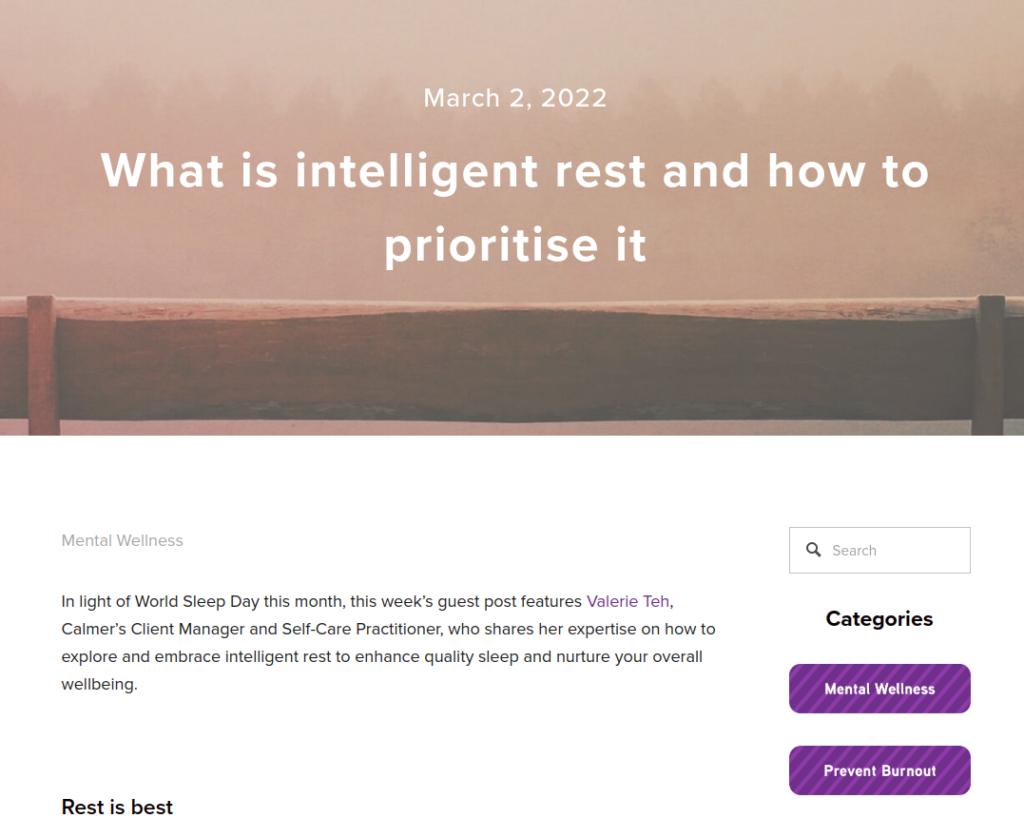Publication
Calmer
Abstract
In light of World Sleep Day this month, this week’s guest post features Valerie Teh, Calmer’s Client Manager and Self-Care Practitioner, who shares her expertise on how to explore and embrace intelligent rest to enhance quality sleep and nurture your overall wellbeing.
Web and Email Links
Related Listings
Journal
IEEE Access
Relaxation helps to reduce physical, mental, and emotional pressure. Relaxation techniques generally enable a person to obtain calmness and well-being by reducing stress, anxiety, or anger. When a person becomes calm the body reacts physiologically, producing the so-called Relaxation Response (RResp) which affects the organism in a positive manner, no matter if it is during a state of relaxation or in the middle of a stressful period. The goal of this paper is to design a system capab […]
Journal
Neuroreport
Meditation is a conscious mental process that induces a set of integrated physiologic changes termed the relaxation response. Functional magnetic resonance imaging (fMRI) was used to identify and characterize the brain regions that are active during a simple form of meditation. Significant (p<10(-7)) signal increases were observed in the group-averaged data in the dorsolateral prefrontal and parietal cortices, hippocampus/parahippocampus, temporal lobe, pregenual anterior cingulate […]
Journal
Journal of Traditional and Complementary Medicine
Background and aim Mental stress represents a pivotal factor in cardiovascular diseases. The mechanism by which stress produces its deleterious effects is still under study, but one of the most explored pathways is inflammation-aging and cell senescence. In this scenario, circulating microRNAs appear to be regulatory elements of the telomerase activity and alternative splicing within the nuclear factor kappa-light-chain-enhancer (NF-κB) network. Anti-stress techniques appeared to be […]

